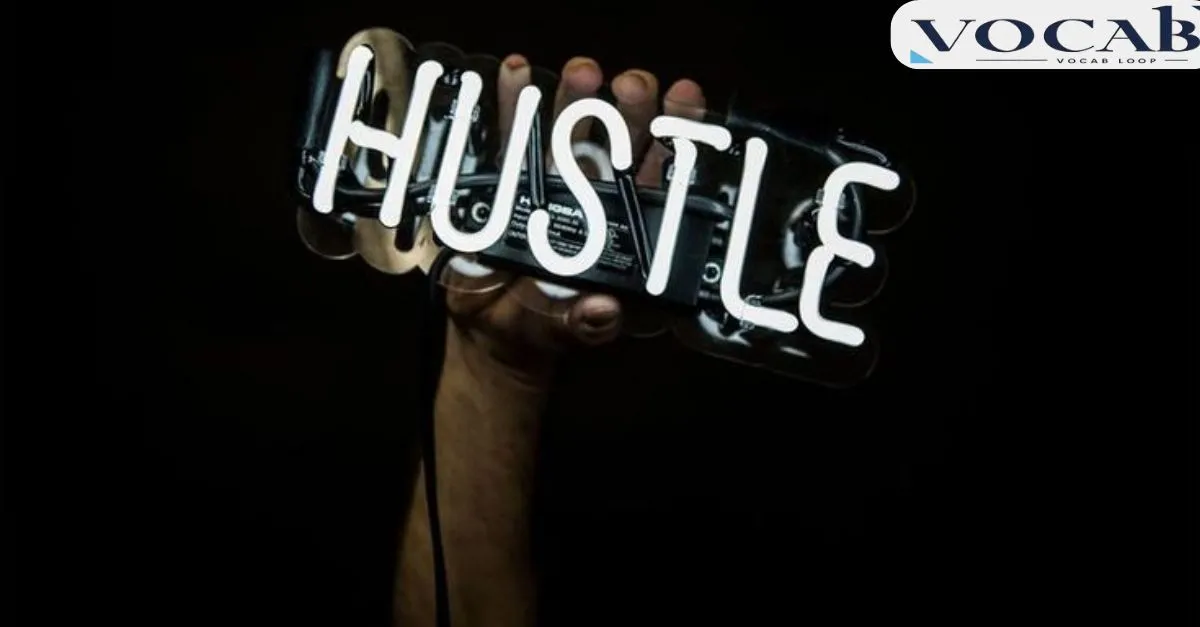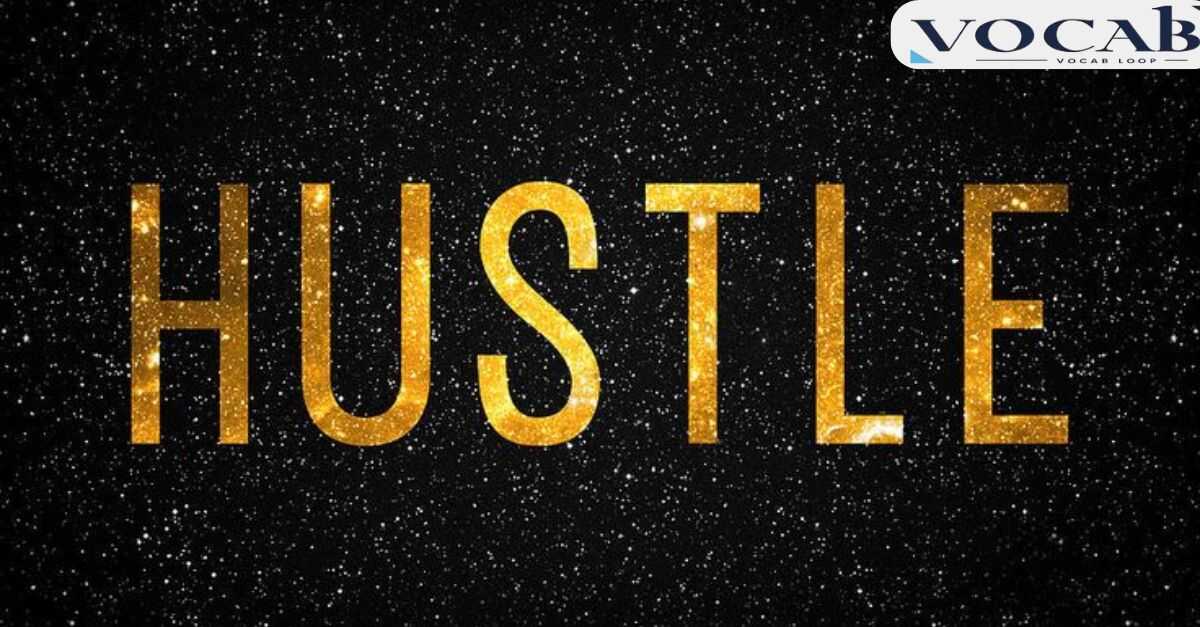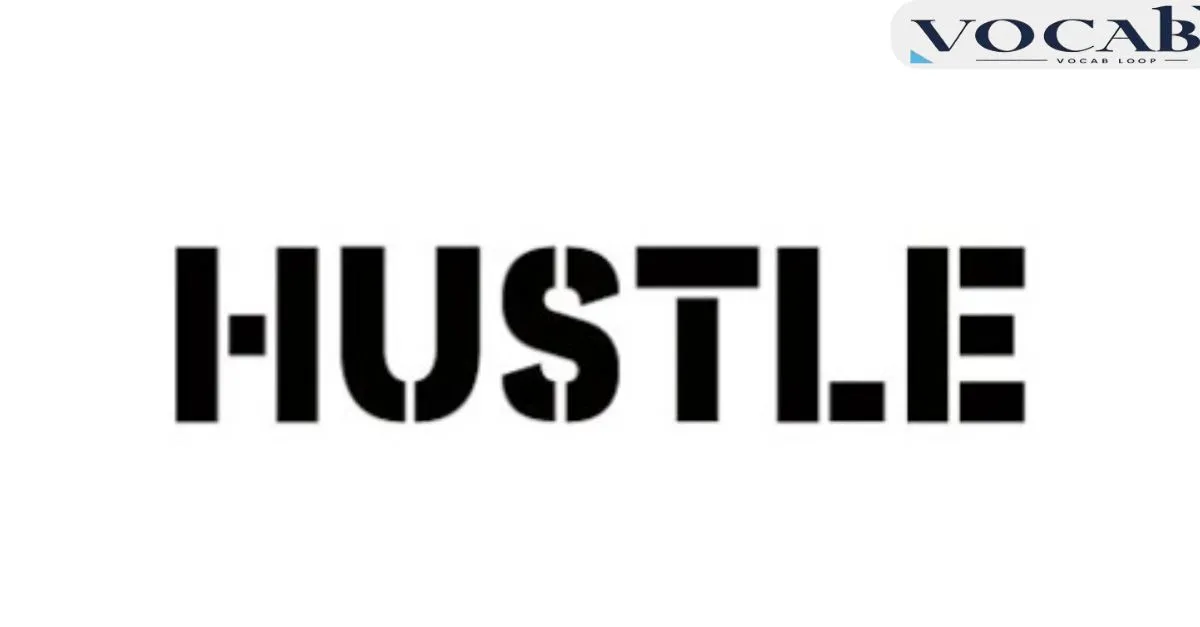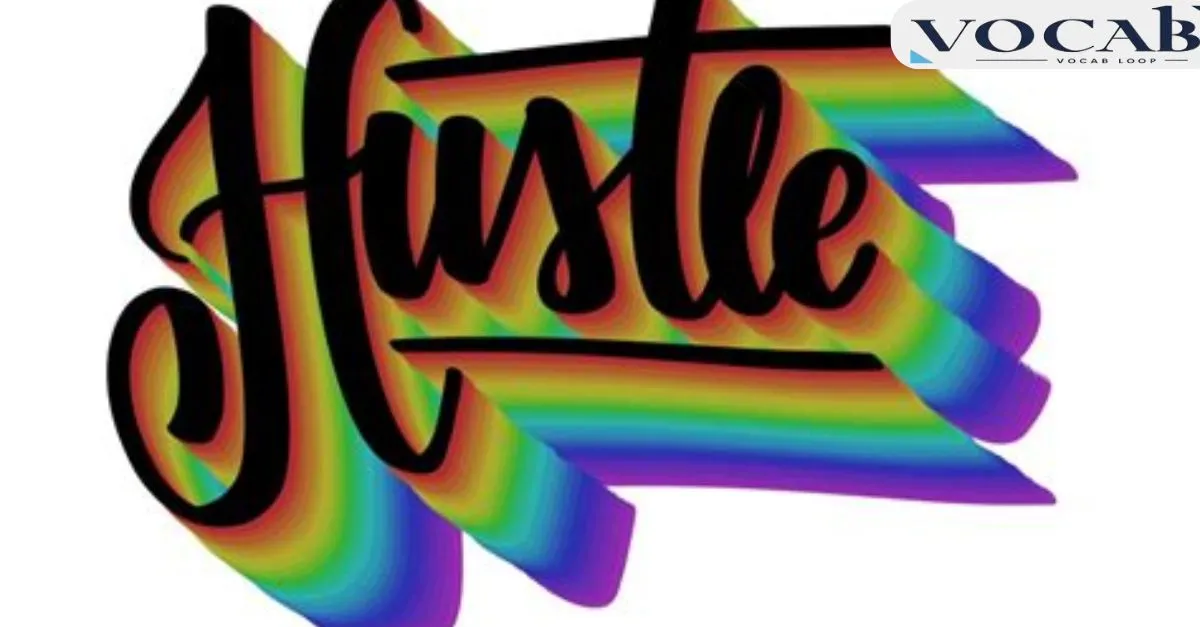When it comes to the words “hustle” and “hussle,” many people are unsure about which spelling is correct. In casual contexts, like texting or social media, both spellings are often used interchangeably. However, hustle is the only correct form in standard English. Understanding the distinction between the two is important for clear and accurate communication.
This article will explore the confusion surrounding hustle and hussle, diving into their meanings, origins, and how to use hustle correctly. By the end, you’ll have a better understanding of when and why to choose the right spelling in both formal and informal settings.
What is Confusion: Hustle or Hussle?
The confusion between “hustle” and “hussle” is common, especially in the digital age where informal language and creative spelling often blend with standard usage. “Hussle” is frequently seen in online communication, primarily because people may not know it’s a misspelling. It’s easy to understand why this happens: the sound of both worlds is the same, and hussle looks like a playful or modern twist on hustle.
It’s important to clarify that hussle is not a formally accepted word, while hustle is the standard, grammatically correct version.In formal writing or professional contexts, hustle is always the correct choice. Whether you’re referring to physical movement, quick actions, or ambition in business or personal life, hustle is the word you should use. Let’s take a closer look at the meanings and proper uses of hustle and hussle to clear up the confusion.
Is the Hustle Word Correct?

Definition
Hustle is the correct word. As a noun and verb, it has a wide range of meanings. The term originated in the 16th century from the Dutch word “husselen,” meaning to shake or jostle. Over time, it has evolved in English to refer to energetic movement, persuasion, and the determination to succeed.
Whether you’re using it in a business context or referring to someone’s physical or mental effort, hustle remains the widely accepted form.
Meaning
The meaning of hustle can vary depending on the context. As a verb, it means to move quickly, often with a sense of urgency. For example, “He had to hustle to catch the bus.” In a business context, hustle can also mean persuading someone to do something, like “She hustled her friend into buying the product.”
As a noun, hustle can refer to the effort or determination someone shows when striving to achieve something. It could be the hard work of a person or a team to accomplish a goal. For instance, “The team showed great hustle during the match.” It can also refer to dishonest practices, like in street sales, where people may use trickery to make money. However, the most common use of hustle today is tied to energy and action toward achieving success in any form.
Is the Hussle Word Correct?
Definition
“Hussle” is not a correct or standard word in English. It’s a spelling mistake that occasionally appears in casual writing, especially in social media posts or text messages. People often use “hussle” because it sounds similar to “hustle” and sometimes in an attempt to add emphasis or style.
“Hussle” may be used in informal language or slang, it’s not recognized in dictionaries and is not considered correct English.
Meaning
Since hussle is not an official word in English, it has no specific definition. When people use it, they are usually trying to say “hustle” but mistakenly add an extra “s” or use it in a creative way. If you want to ensure your language is accurate, always stick with “hustle” instead of “hussle”.
Quick Summary
Hustle is the correct spelling, widely accepted in both formal and informal contexts. It can be used as a verb to describe working hard, moving quickly, or persuading someone, and as a noun to refer to hard work, effort, or a busy environment. The term has become synonymous with ambition, energy, and determination, especially in the context of modern hustle culture. On the other hand, hussle is a misspelling and should be avoided in professional writing. It’s a casual mistake that lacks any formal recognition in the English language.
Remember that hustle is the proper form, and it conveys action, drive, and urgency. Whether you’re describing a fast-paced environment or the effort put into achieving a goal, hustle is the word to use. Always double-check your spelling to ensure accuracy, particularly when the term is central to the message you’re conveying.
Hustle vs. Hussle: What’s the Difference?

The difference between hustle and hussle is straightforward. Hustle is the correct spelling, used in every context, whether formal or informal. Hussle, on the other hand, is simply a misspelling and should be avoided.
While both words may sound the same, only hustle carries proper grammatical weight in the English language.
Hustle vs. Hussle – Key Comparison
| Feature | Hustle | Hussle |
| Correct Usage | Yes, widely used | No, considered a mistake |
| Definition | Energetic action, persuasion, or movement | None officially recognized |
| Parts of Speech | Verb, Noun | Not recognized |
| Formal Acceptance | Yes | No |
Hustle or Hussle as Parts of Speech
Hustle is a versatile word, functioning as both a verb and a noun in English. As a verb, it refers to moving with quick energy or pushing someone toward a specific goal. For instance, “We need to hustle if we want to make it to the airport on time.” It can also mean persuading someone forcefully, like in business situations where someone may hustle a customer into buying something.
As a noun, hustle represents action and effort. You might hear someone say, “He put a lot of hustle into finishing his project ahead of time.” It can also refer to dishonest practices like street vending or trickery, but this usage is less common in modern English.Since hussle is not a recognized word, it doesn’t have any grammatical function as a part of speech. The correct choice is always hustle.
Pronunciation of Hustle or Hussle
Both hustle and hussle are pronounced the same way: /ˈhʌs.əl/. The stress is on the first syllable, and the sound is similar to muscle or puzzle. Despite the difference in spelling, the pronunciation remains identical, which is why it’s easy to see why people might mistakenly write “hussle” instead of hustle.
When speaking formally or professionally, you can confidently use hustle knowing that it’s the correct pronunciation.
Side-by-Side Comparison: Hustle or Hussle
| Feature | Hustle | Hussle |
| Spelling | Correct | Incorrect |
| Parts of Speech | Verb, Noun | Not officially recognized |
| Dictionary Definition | Yes | No |
| Usage | Formal and informal | Informal or slang |
Which One is More Acceptable: Hustle or Hussle?
Hustle is the only acceptable form in both formal and informal settings. If you are writing for a professional or academic context, hustle is the spelling to use. While hussle may appear in some informal contexts like online chat or social media.
It is not widely accepted in formal language, and using it in such settings may make your writing appear incorrect or unprofessional.
Meaning of Hustle in English

Hustle Verb (PUSH)
One common verb meaning of hustle is to push someone or something forward. It could refer to physically pushing or metaphorically encouraging someone to act quickly. For example, “He hustled to get his papers in on time.”
Hustle Verb (PERSUADE)
Another meaning of hustle is to persuade or sell something with great urgency. “She hustled him into buying the phone by offering a great deal.”
Hustle Noun [U] (ACTION)
As a noun, hustle refers to action or energy. In a professional context, it often implies working hard or putting in extra effort to achieve success. “The team showed great hustle to win the match.”
Hustle American Dictionary
According to major dictionaries like Merriam-Webster, hustle is defined as a verb meaning to act quickly, push forward, or even persuade aggressively.
It can also be used as a noun to refer to the act of moving quickly or putting forth effort.
Common Mistakes and How to Avoid Them
A typical mistake is using hussle instead of hustle. To avoid this, remember that hustle is the correct form, and always check your spelling before finalizing any written work.
Trick to Remember the Difference: Hustle or Hussle
A simple trick to avoid the mistake is to think of hustle as an active word that involves energy and determination. If you’re not sure which spelling to use, ask yourself: “Does this look right in a professional setting?” If not, choose hustle.
Origins of Hustle or Hussle

Hustle:
The word hustle has its roots in the Dutch word husselen, which meant “to shake” or “to jostle.” This term describes physical movement or quick actions. Over time, it evolved in English to signify more than just physical shaking—it began to represent vigorous effort and energy in accomplishing tasks.
By the early 20th century, hustle was widely used to describe the hard work and determination needed to succeed, particularly in competitive settings like business and urban life. The word now conveys a sense of ambition, drive, and perseverance, especially in modern entrepreneurial culture.
Hussle:
Hussle has no historical or linguistic origin. It is simply a misspelling or variation of the word hustle. Often used in informal contexts, particularly in internet slang or casual conversation, hussle appears to have emerged due to its phonetic similarity to hustle.
While it’s sometimes seen in creative writing, social media posts, or text messages, hussle is not recognized in any formal dictionary or linguistic texts. It’s essentially a spelling error that lacks grammatical validity. As such, hussle should be avoided in professional or standard writing in favor of the correct hustle.
Synonyms of Hustle
- Work hard
- Strive
- Push
- Rush
- Hustle and bustle
- Labor
- Effort
- Move quickly
- Drive
- Determination
Hustle in Daily Usage

- He had to hustle to finish the report.
- The team hustled to secure the deal.
- She showed incredible hustle to get ahead in her career.
- I had to hustle to make it to the meeting on time.
- He hustled for customers outside the store.
- We need to hustle if we’re going to win this game.
- She hustled to sell all the tickets before the show started.
- He’s been hustling hard to build his business.
- They hustled to clear the street before the parade.
- The crew hustled to finish the project early.
FAQs
What is the correct spelling?
Hustle is the correct spelling.
Can I use “hussle” in writing?
No, hussle is incorrect. Use hustle instead.
What does “hustle” mean?
Hustle can mean to move quickly, work hard, or persuade someone.
Is “hustle” formal or informal?
Hustle can be used in both formal and informal contexts.
Where does the word “hustle” come from?
The word comes from Dutch origins, meaning to shake or jostle.
Conclusion
Hustle is the correct and widely accepted spelling in the English language. It has a rich history, evolving from its Dutch origins of “to shake” into a term that signifies hard work, determination, and energetic action. Whether you’re describing effort, quick movement, or persuasive action, hustle is the proper word to use.
On the other hand, hussle is simply a misspelling, without any legitimate linguistic or historical basis. While language does evolve, it’s important to use the correct form to ensure accuracy in your writing. Sticking with hustle helps maintain professionalism and clarity, especially in formal and professional settings.

Alex Hormozi is a seasoned blogger at Vocab Loop, known for his deep insights into language, vocabulary, and grammar. With years of experience in writing, Alex shares practical tips and effective strategies to help readers improve their linguistic skills and enhance their writing abilities.

